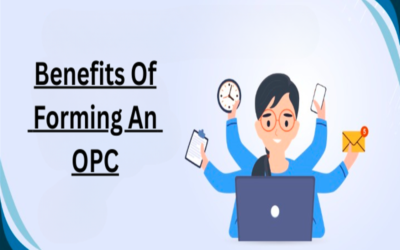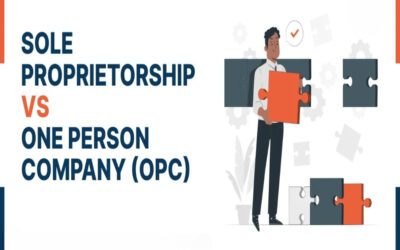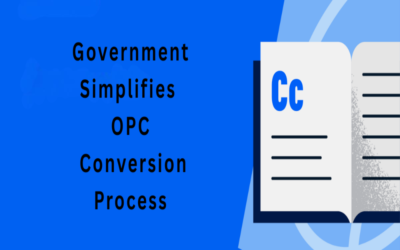Single Member Ownership An OPC can be formed by only one natural person who is both the owner and shareholder. The member must be an Indian citizen and resident in India. Only one OPC can be incorporated by a person at a time. The sole member holds full control over...
OPC Articles
What are the advantages of forming an OPC over other business structures?
Legal Recognition and Status OPC has a separate legal identity, unlike a sole proprietorship, where the owner and business are one. The company can sue and be sued in its name, improving legal clarity. Ownership of property and contractual rights is vested in the...
What are the limitations of an OPC?
Restriction on Ownership Only a natural person who is an Indian citizen and resident can incorporate an OPC. A person can form only one OPC at a time. Foreign nationals or non-resident Indians are not allowed to incorporate an OPC. Body corporates such as companies or...
What are the key benefits of forming an OPC?
Limited Liability Protection The personal assets of the member are protected from business liabilities. Liability is restricted to the unpaid share capital subscribed by the owner. The member is not personally responsible for losses or debts incurred by the company....
What is a One Person Company (OPC), and how is it different from a sole proprietorship?
Meaning of One Person Company (OPC) A One Person Company is a private limited company formed by a single individual under the Companies Act, 2013. It has its own legal identity, separate from its owner. OPC allows the sole member to enjoy the benefits of a corporate...
Government Simplifies OPC Conversion Process
The Government of India has significantly simplified the conversion process for One Person Companies (OPCs), making it easier for solo entrepreneurs to transition their businesses into Private or Public Limited Companies as they scale. This move, led by the Ministry...
Establish a compliance checklist for new OPC
Introduction Once a One Person Company (OPC) is incorporated under the Companies Act, 2013, it must adhere to various legal and regulatory compliances to remain in good standing. These obligations begin immediately after incorporation and continue annually. Failure to...
Explain the taxation slabs for OPC
Introduction A One Person Company (OPC) is treated as a private limited company for taxation in India. Unlike sole proprietorships, which are taxed as individuals under personal income tax slabs, OPCs are taxed under the corporate taxation system as prescribed by the...
Briefly analyze professional costs for OPC
Introduction Setting up and maintaining a One Person Company (OPC) involves several professional services that contribute to its legal compliance, financial management, and operational structure. These services come with associated costs that the owner must factor...
Describe revival options for dormant OPC
Introduction A One Person Company (OPC) may become dormant due to business inactivity, financial constraints, or strategic pause. While being dormant relieves the entity from some operational pressures, it must still remain compliant with the law or face eventual...










